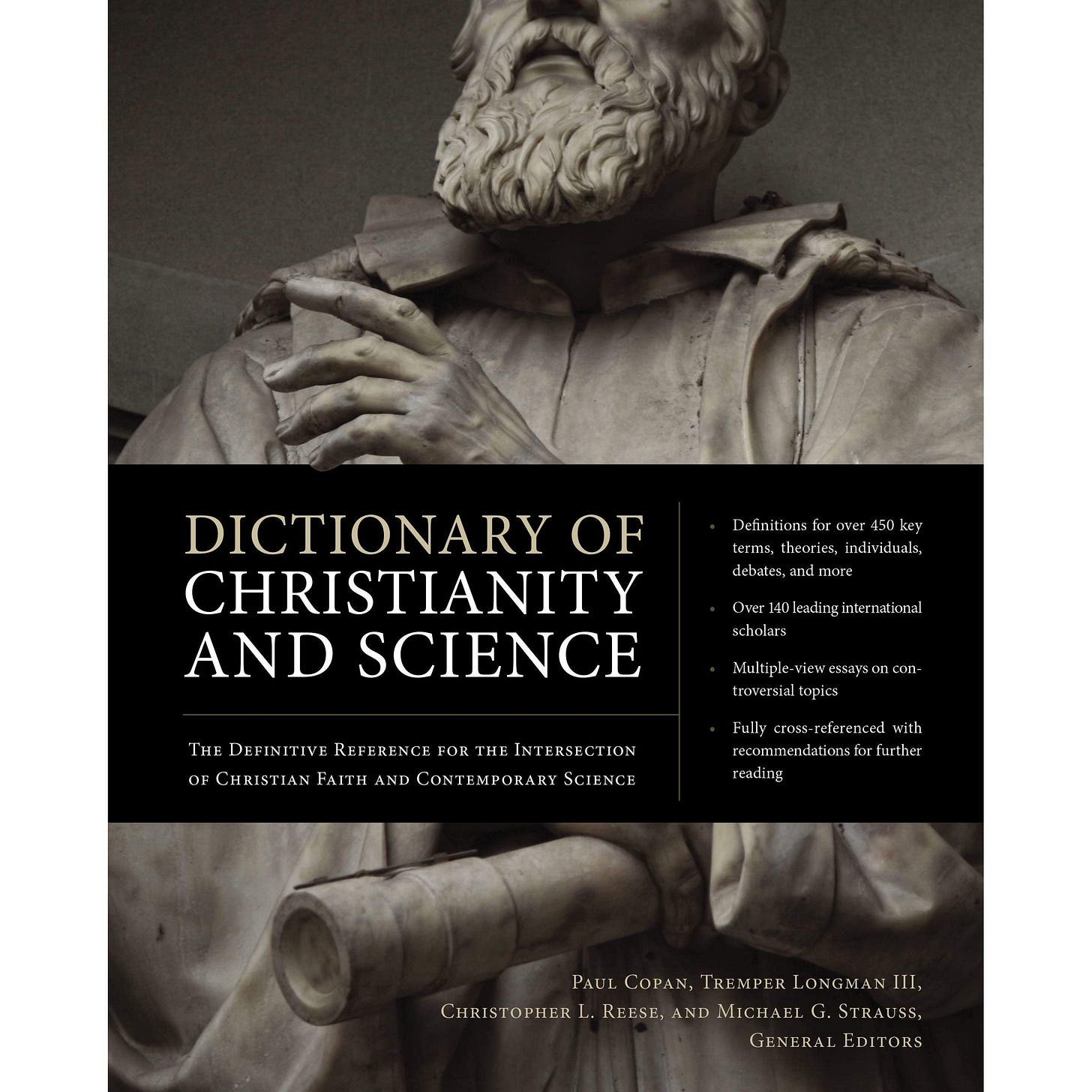Top 30 Apologetics Books (#3): Origen, Against Celsus
Dear Readers,
For those in the U.S., we wish you a happy Fourth of July holiday this week!
We’re busy working on the July issue of The Worldview Bulletin. We’ll have articles by Paul Copan, Paul Gould, Edgar Andrews, Rob Bowman, and an interview with Sean McDowell on his and J. Warner Wallace’s new book So The Next Generation Will Know, plus all of our other regular features. Subscribe now and don’t miss this enlightening and inspiring issue!
Quotable
“The clearest mark of the early Church’s humanism was found not just in its support of the pagan poor but the attention and respect it paid to those on the very margins of life. The Church, for example, inherited the—to the ancient world unfathomable— Jewish prohibition on abortion and infanticide. Its attitude to that other group of marginal humans, slaves, was more ambiguous, but only slightly more so. Because slavery in the ancient world ranged from comfortable domestic employment to brutal enslavement, the initial Christian response was to ameliorate rather than abolish. The very fact that slaves and masters shared the same body of Christ in the Eucharist slowly undermined the inherent inequality of the master–slave relationship, however. In time this would underpin Gregory of Nyssa’s unequivocal and indignant denunciation of slavery in his fourth sermon on the book of Ecclesiastes in 379 and, eventually, lead to the erosion of the institution in later centuries.”
Nick Spencer, The Evolution of the West: How Christianity Has Shaped Our Values. SPCK. Kindle Edition.
#3: Origen, Against Celsus (AD 248)
Note: Below, Dr. Bowman continues his series on the 30 most important apologetics books in church history. See his earlier posts in the previous two weeks of Useful Things.
By far the most important Greek apologist of the third century was Origen (ca. 185-254), whose lengthy Contra Celsum (“Against Celsus”) was a reply to Celsus’s philosophical, ethical, and historical criticisms of Christianity. Celsus was a pagan philosopher whose book The True Word was written around AD 170. Celsus’s book has not itself survived, but much of it is preserved within Origen’s book, which contains generous quotations from it. Celsus drew on an earlier critique of Christianity by an unknown Jewish author, and quotations from this “Jew of Celsus,” as Origen calls him, are also preserved in Contra Celsum. Just as Luke had written his two-volume work (Luke–Acts) for a patron named Theophilus, Origen wrote his work for a Christian patron named Ambrose (or Ambrosius). In his preface, Origen explains that he intended his work not for mature believers, whom he assumed would not be shaken in their faith by arguments such as Celsus’s, but for those unfamiliar with the Christian faith or for new and weak believers. Whereas the second-century apologists had pleaded for imperial toleration of Christianity, Origen pleaded for intellectual respect for Christianity.
Origen’s book is difficult to summarize because to a great extent it is a point by point rebuttal to Celsus. It is divided into eight “books,” each of which consists of 65 to 99 “chapters” (essentially somewhat long paragraphs). We may identify three kinds of responses that Origen makes to Celsus’s criticisms. First, Origen often pointed out that what Celsus said about Christianity was simply not factually correct or was based on a strained interpretation of the facts. For example, Origen argued that Jesus did not do his miracles by sorcery, and he offered an impressive historical defense of Jesus’ resurrection against an early hallucination theory and other objections. Second, Origen turned around many of Celsus’s criticisms, showing that what Celsus thought was bad or irrational was good and reasonable. For example, Celsus had faulted Christians for not worshiping the divinity in the Roman emperor, to which Origen replied that either the emperor’s divinity was really a demon or it simply did not exist. Third, Origen argued that some of Celsus’s objections were based on a naïve, literalistic reading of the Bible. Like many other Christian intellectuals in the early church, Origen argued that some biblical stories (specifically in the Old Testament) were meant to be interpreted allegorically.
Origen’s Contra Celsum stood as the most successful and valued work of Christian apologetics for well over two centuries. It is with good reason that Origen’s book has been ranked as one of the classics of apologetics.
—Rob Bowman Jr. is an evangelical Christian apologist, biblical scholar, author, editor, and lecturer. He is the author of over sixty articles and author or co-author of thirteen books, including Putting Jesus in His Place: The Case for the Deity of Christ, co-authored with J. Ed Komoszewski. He leads the Apologetics Book Club on Facebook.
News*
“Honoring the Son”: An Entree Work
Top Ten Book on Paul for 2014-19
The Bible’s Impact on Human Rights
Materialism Totters — Neural Network Theory to the Rescue?
Irenaeus of Lyon: Passionate Apologist to the Gnostics
I Befriended Bart Ehrman by Debating Him
The Five Worst “Arguments” (or Claims) Made by Internet Atheists
PCA Sides With the Nashville Statement Over Revoice’s Approach
(*The views and opinions expressed in the articles, videos, podcasts, and books linked to do not necessarily represent the views of the editors of The Worldview Bulletin.)
eBook, Audiobook, and Software Deals
Note: These deals were valid at the time this message was written, but prices may change without notice.
WHAT IS MAN?: Adam, Alien or Ape? by Edgar Andrews - $3.99
CSB Worldview Study Bible by Holman Bible Publishers - $4.99
Intellectuals Don't Need God and Other Modern Myths: Building Bridges to Faith Through Apologetics by Alister McGrath - $2.99
A Doubter's Guide to the Bible: Inside History’s Bestseller for Believers and Skeptics by John Dickson - $2.99
Forensic Faith: A Homicide Detective Makes the Case for a More Reasonable, Evidential Christian Faith by J. Warner Wallace - $0.99
Evidence That Demands a Verdict: Life-Changing Truth for a Skeptical World by Josh McDowell and Sean McDowell - $3.99
The Creator Revealed: A Physicist Examines the Big Bang and the Bible by Michael G. Strauss - $3.03
Star Struck: Seeing the Creator in the Wonders of Our Cosmos by David Bradstreet and Steve Rabey - $2.99
Finding Truth: 5 Principles for Unmasking Atheism, Secularism, and Other God Substitutes by Nancy Pearcey - $0.99
A Practical Guide to Culture: Helping the Next Generation Navigate Today's World by John Stonestreet and Brett Kunkle - $0.79
Dignity and Destiny: Humanity in the Image of God by John Kilner - $2.51
The Missing Gospels: Unearthing the Truth Behind Alternative Christianities by Darrell Bock - $2.99
Audiobooks
The Weight of Glory by C. S. Lewis - $2.99
Logos Bible Software
For a limited time, use coupon code NEW30 to get a 30% discount on several thousand titles in Logos (the code is only good for titles listed on this webpage).
Logos 8 Basic is available as a free download.
Videos
Apologetics Based on the Value of Human Life - Richard Weikart
The Dehumanizing Impact of Modern Thought - Richard Weikart
The Case for Christian Theism: The Reasonable Faith UK Tour
Vince Vitale vs Julian Baggini - Why does God allow suffering?
Brian Leftow - How Good is God?
Tim Muehlhoff: Understanding the Schemes of the Devil
Edward Davis, Historical Roots of the American Evangelical Encounter with Natural History
Douglas Moo, The Type of the One to Come: Adam in Paul's Theology
Answering Atheist Objections to Heaven - Live Interview w/ Dr. Jerry Walls
Audio
* Based on the numbers we receive on clicks for each issue, it seems that audio links are the least popular category. Thus, we are considering dropping this category from our weekly lineup. If you benefit from the audio links and would like to see us keep them, please drop us a line at worldviewbulletin@gmail.com. Thanks!
Helpful Resources
Check out biblicaltraining.org where you can listen to course lectures presented by notable evangelical scholars, free of charge. See the full list of courses here. These are great for listening to while commuting, traveling, exercising, or doing house work. Among the 130 courses are 10 on worldview issues.
Subscribe to the Worldview Bulletin Monthly Newsletter!
If you’re not a subscriber yet, sign up now and receive 12 issues of The Worldview Bulletin, plus our full archive of previous articles.
the June issue has some great content you won’t want to miss, including:
Part two of Paul Copan’s popular article Apatheism and the Unexamined Life—How should we respond to those who say it doesn’t matter whether God exists?
Paul Gould on the modern quest for authenticity—Should we follow the “Disney Model” and be true to ourselves at all costs?
Our interview with Dr. Tremper Longman on Old Testament controversies—How should we think about origins, sexuality, and violence in the Old Testament?
Plus new books in worldview and apologetics, ebook deals, conference info, and other great gems.—Don’t miss the popular New Books section!
For the price of one of your favorite coffeehouse beverages each month, get The Worldview Bulletin and stay informed and equipped on the most important Christian worldview issues of the day!
Free Download: Cultural Apologetics
Check out this free excerpt from Paul Gould’s new book Cultural Apologetics: Renewing the Christian Voice, Conscience, and Imagination in a Disenchanted World.
Cultural Apologetics sets forth a fresh model for cultural engagement, rooted in the biblical account of Paul's speech on Mars Hill, which details practical steps for reestablishing the Christian voice, conscience, and imagination.
With creative insights, Cultural Apologetics prepares readers to share a vision of the Christian faith that is both plausible and desirable, offering clarity for those who have become disoriented in the haze of modern Western culture.

Free Download: The Dictionary of Christianity and Science
If you haven’t already, download a free, 20-page excerpt of the Dictionary of Christianity and Science, edited by Paul Copan and Christopher Reese, along with Tremper Longman III and Michael Strauss.
The Dictionary features over 140 evangelical contributors and 450 entries on key concepts, theories, terms, movements, individuals, and debates in relation to Christianity and science.



